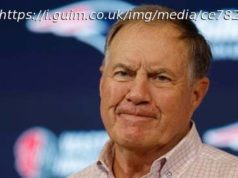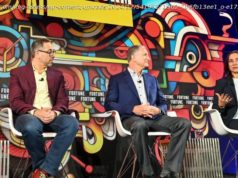Instead of whiffing on the Paris accord, Trump should double down, says Prof. Joseph Holt.
President Trump is poised to whiff on the Paris climate accord decision he will make this week, but he could hit a home run instead. He could do that by exercising real rather than fake climate leadership and not only remaining in the accord, but setting a more ambitious, science-based emissions-reduction target than President Obama did.
Hitting a home run will require that the president recognizes both the kind of serious challenge that climate change represents, and the kind of leadership that would be necessary to meet that kind of challenge.
He could turn for insight to Real Leadership: Helping People and Organizations Face Their Toughest Challenges, by Dean Williams of the Harvard Kennedy School of Government. Williams, Ronald Heifetz and other colleagues of theirs at Harvard emphasize that effective leadership requires distinguishing «technical» from «adaptive» challenges.
Technical challenges can be met through the straightforward application of expertise without making any changes to underlying values, beliefs and priorities. Adaptive challenges are more complex and persist even after you apply the best available insights and methods to it. Meeting adaptive challenges requires the painful work of changing certain long-held values, beliefs and priorities.
IBM faced a technical challenge when it tried to increase sales of its best-selling product, the mainframe computer, in the 1980s. But it faced an adaptive challenge when customers stopped buying those computers by the early 1990s and it had to reinvent itself to survive. That required for the first time in IBM’s history naming a CEO, Lou Gerstner, who was not only not from IBM, but not from the industry.
Climate change is arguably the greatest adaptive challenge the world has faced. It threatens future prosperity and challenges leading companies to rethink why the very reason they exist and the way they do business. It is also the mother of all economic opportunities.
Adaptive challenges call for a different approach to leadership than technical challenges do. And as Williams explains there is an important distinction between «real» and «counterfeit» leadership in the face of adaptive challenges. (Since the president has the best words and prefers «fake» to «counterfeit, » I will use «fake» for purposes of this article.)
Williams describes the heart of the difference between the two approaches to leadership in this way: «Fundamentally, real leadership gets people to confront reality and change values, habits, practices, and priorities in order to deal with the real threat or real opportunity the people face.» Fake leadership, by contrast, allows people to avoid reality and deny the real threats and opportunities they face so that they don’t need to make any difficult changes.
So far President Trump has been a fake leader on the climate. A real leader would first have recognized how serious a challenge climate change represents and mobilized people and businesses to make difficult changes to meet that challenge. But Trump has encouraged his base to persist in the dangerous illusion that climate change is a «hoax» so that no painful changes on their part are necessary.
Leaders like to protect their people, but real leaders see that sometimes to protect people you need to make sure they see how great a threat they face and how much they have to do to meet that threat. As Lou Gerstner explained, «Transformation of an enterprise begins with a sense of crisis or urgency…. No institution will go through fundamental change unless it believes it is in deep trouble and needs to do something different to survive.»
A real leader would emphasize not only the threats, but also the opportunities presented by climate change. Hundreds of prominent U. S. businesses have urged President Trump not to abandon the Paris accord in part because they see action on the climate as an unparalleled opportunity for sustainable growth. As a case in point, Jeff Immelt, the chairman and CEO of GE, recently noted in a talk that GE has a $12 billion renewable energy business that did not even exist 10 years ago.
The president seems blind to the unparalleled opportunities for innovation and growth that climate change represents. He has promised to bring back coal jobs even though there are almost four times more solar than coal jobs in the U. S. and the solar workforce increased by twenty-five percent in 2016 while wind employment increased by thirty-two percent. The best thing the President could do for coal workers is to train them for the jobs of the future rather than promise them the jobs of the past.
In the Paris accord under President Obama, the U. S. pledged to reduce greenhouse gas emissions by at least 26 percent from 2005 levels by 2025. But recent studies indicate that even meeting that pledge will not be enough to prevent further global warming beyond 2 degrees Celsius and so avoid the most severe impacts of climate change. That presents President Trump with an opportunity for the big win that he so clearly wants.
The president may or may not have hit a home run in his first trip abroad, as he claimed. But he certainly could hit one by not only staying in the Paris accord, but doing one better than President Obama by increasing the nation’s emissions-reduction target from at least twenty-six percent to at least thirty percent by 2025 against a 2005 baseline because a higher target will be necessary to avert climate catastrophe.
I know that seems unlikely based on the president’s statements and actions on the climate to date. But the president prides himself on being unpredictable, and his chief economic adviser, Gary Cohn, said that he was working to understand the European view of climate change at last week’s G7 summit meeting.
So who knows? Maybe the president will see that transforming his legacy by doing the right thing for the climate and for humanity is the greatest opportunity for winning that he will have, and that he can make it clear that America is great again in the process.
Commentary by Joseph Holt, an associate teaching professor at the University of Notre Dame’s Mendoza College of Business who specializes in business ethics and leadership.






